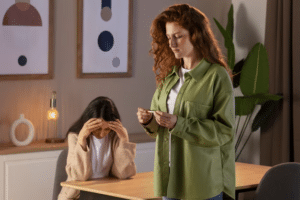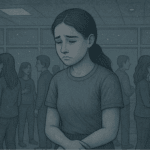
Anxiety and depression are two of the most common mental health conditions affecting people worldwide. Both conditions can impact daily life, making it harder to focus, feel joy, or maintain relationships. Understanding how to manage anxiety and depression is crucial for those experiencing these challenges. In this article, we’ll discuss various treatment options, ranging from therapy to lifestyle changes, and provide guidance on coping with anxiety and depression.
What Are Anxiety and Depression?
Anxiety is the body’s natural response to stress, but when it becomes overwhelming and persistent, it can interfere with daily life. Depression, on the other hand, is a prolonged feeling of sadness and loss of interest. These conditions can occur separately, but many people experience both simultaneously.
Treatment Options for Managing Anxiety and Depression
Managing anxiety and depression requires a combination of approaches, as there is no one-size-fits-all solution. Below, we will discuss common treatment options and support systems that can help individuals regain control of their mental health.
1. Therapy for Anxiety and Depression
Therapy is one of the most popular approaches to treating depression and anxiety. Speaking with a qualified mental health expert in therapy can help you better understand your emotions, triggers, and behaviors. Among the best types of therapy for depression and anxiety is cognitive behavioral therapy, or CBT. It focusses on altering unfavorable thought patterns and actions to elevate mood and strengthen coping skills.
In addition to CBT, other therapy options include interpersonal therapy (IPT), which focuses on improving relationships, and dialectical behavior therapy (DBT), which teaches emotional regulation skills. These therapies offer proven benefits for coping with anxiety and depression.
2. Medication for Anxiety and Depression
Medication is another effective treatment for managing anxiety and depression. Antidepressants, such as selective serotonin reuptake inhibitors (SSRIs), are commonly prescribed to help regulate mood. These medications work by balancing the chemicals in the brain that affect mood and emotions. While medication can be helpful, it’s important to consult with a healthcare provider to find the right type and dosage.
For some, anti-anxiety medications may be prescribed to manage severe anxiety symptoms. However, medication is often combined with therapy to provide the most comprehensive treatment.
3. Lifestyle Changes: A Key to Coping with Anxiety and Depression
Modifications in lifestyle can be very helpful in controlling anxiety and depression in addition to treatment and medication. Regular physical activity that releases endorphins, the body’s natural mood enhancers, has been demonstrated to lessen symptoms, such as walking or yoga. Mental health can also be enhanced by eating a balanced diet high in fruits, vegetables, and omega-3 fatty acids.
Another important component is sleep. Making sure you receive enough sleep each night will help you feel less anxious and stabilise your mood. Another strategy for managing stress and unfavourable thoughts is to practise mindfulness and meditation. These practices can assist manage anxiety and depression on a daily basis.
4. Support Systems for Managing Anxiety and Depression
No one should have to face anxiety and depression alone. Finding support through friends, family, or mental health groups is an important part of treatment. Sharing experiences with people who understand what you’re going through can provide comfort and reduce feelings of isolation.
In addition to personal support, there are professional support systems, such as helplines and online communities, where individuals can seek advice and guidance. Many mental health organizations offer free resources for those looking for anxiety and depression support.
How to Treat Anxiety and Depression: Steps You Can Take
It’s important to recognize that managing anxiety and depression takes time and patience. Here are some steps that can help:
-
- Seek professional help: Reach out to a therapist or counselor for guidance on how to treat anxiety and depression effectively.
-
- Establish a routine: Structure can help you feel more in control of your life, reducing feelings of chaos or uncertainty.
-
- Practice self-care: Engage in activities that make you feel good, whether it’s reading, walking, or spending time with loved ones.
-
- Stay connected: Maintain relationships with people who offer positive support. Connection can ease the burden of anxiety and depression.
-
- Focus on small victories: Managing anxiety and depression can be overwhelming, so start with small goals and gradually work your way up.
Coping with Anxiety and Depression: Finding the Right Treatment for You
It’s important to remember that there is no single way to manage anxiety and depression. Each person’s experience is unique, and finding the right treatment may involve trial and error. Combining therapies, medication, lifestyle changes, and support systems can help create a personalized treatment plan that works best for you.
For those dealing with severe symptoms, seeking immediate help from a mental health professional is crucial. With the right approach, it’s possible to manage anxiety and depression, improving quality of life and restoring hope.
Conclusion
Managing anxiety and depression is a journey that requires patience, effort, and the right treatment plan. From therapy to lifestyle changes, there are many options available to help cope with these conditions. Remember, reaching out for help and staying connected with a support system is key to overcoming anxiety and depression.
For more mental health resources and support, please visit Mental Health Resources.
Frequently Asked Questions (FAQs)
What are the most effective treatments for managing anxiety and depression?
The most effective treatments often include a combination of therapy, such as Cognitive Behavioral Therapy (CBT), medication like antidepressants or anti-anxiety drugs, and lifestyle changes such as regular exercise, a healthy diet, and mindfulness practices.
How long does it take to see improvement in anxiety and depression symptoms?
Improvement varies by individual. Some may notice changes within a few weeks of starting treatment, while for others, it could take several months. Consistent therapy and medication can help achieve long-term relief.
Can lifestyle changes alone help manage anxiety and depression?
Lifestyle changes like exercise, proper sleep, and a balanced diet can significantly improve symptoms but are often most effective when combined with professional therapy or medication.












